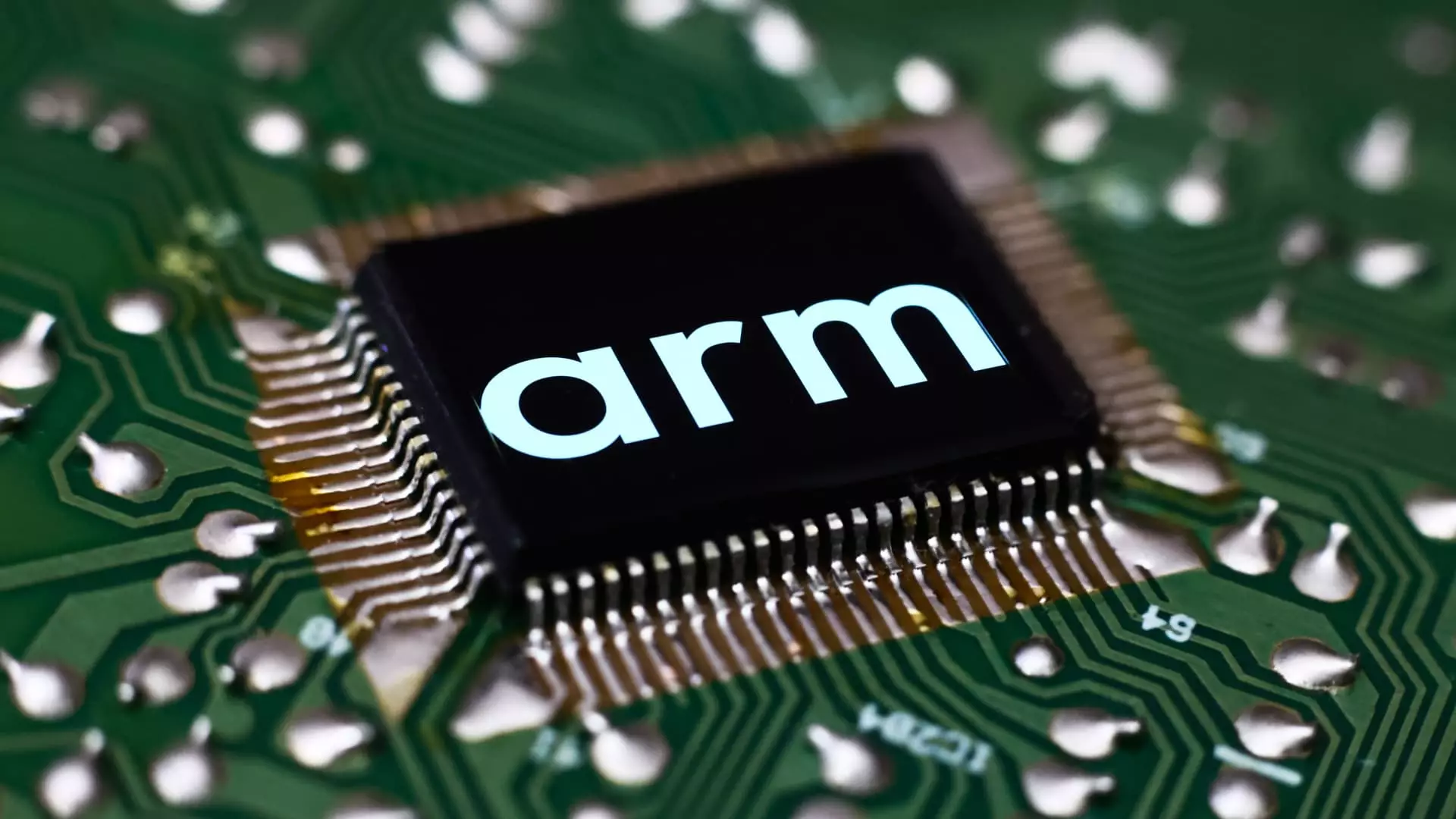Arm, a British chip designer, experienced a drop of over 2% in its shares on Thursday due to disappointing revenue forecasts. Despite a strong sales quarter driven by the surging demand for artificial intelligence applications, the lackluster revenue outlook left investors underwhelmed. Arm reported a stellar fiscal fourth-quarter revenue of $928 million, representing a 47% year-over-year increase. The robust performance was primarily attributed to Arm’s licensing business, which witnessed a remarkable 60% growth, generating $414 million in the quarter. The company attributed this success to the signing of several high-value license agreements for AI chips.
On the royalty revenue front, Arm observed a 37% year-over-year growth, totaling $514 million. This increase was fueled by the expanding adoption of the recently introduced Armv9-based chips, which offer higher margins. However, despite the impressive fourth-quarter results, Arm’s revenue guidance for fiscal 2025 fell short of market expectations. The company projected a revenue range of $3.8 billion to $4.1 billion for the year, slightly below the analysts’ consensus estimate of $3.99 billion. In the current quarter of fiscal 2025, Arm anticipates sales between $875 million and $925 million, compared to the estimated $857.5 million.
Citi analysts, led by Andrew Gardiner, acknowledged Arm’s consecutive quarters of exceeding expectations but highlighted that the full-year revenue guidance midpoint fell slightly below consensus. Despite this, they emphasized the significance of Arm’s licensing business’s strength, particularly in driving future royalties. The analysts noted that the growth in licensing, propelled by the demand for AI solutions and Arm’s higher value v9 and Compute Subsystem offerings, serves as a promising indicator for future royalty growth. They reiterated their buy rating on the stock, emphasizing the pivotal role that current licensing activities play in securing future royalty growth for Arm.
Arm’s distinct position in the semiconductor industry sets it apart from traditional chipmakers like Nvidia. Referred to as the “Switzerland” of the industry, Arm specializes in designing chip architectures upon which other companies build their products. By licensing these designs to companies like Qualcomm and Nvidia, Arm generates royalty fees for each unit sold. The company, originally founded in Cambridge, England, in 1990, operated independently before SoftBank’s acquisition in 2016 for $32 billion.
Despite a failed acquisition attempt by Nvidia, Arm’s subsequent IPO on the Nasdaq in September 2023 saw its shares surge, reflecting the soaring demand for chips capable of powering advanced AI applications. The market debut marked a significant milestone for the technology industry following a slowdown in high-profile IPOs in 2022 due to adverse market conditions. Arm’s success underscores the pivotal role it plays in driving innovation in the semiconductor space and meeting the evolving demands of the AI-driven technological landscape.

